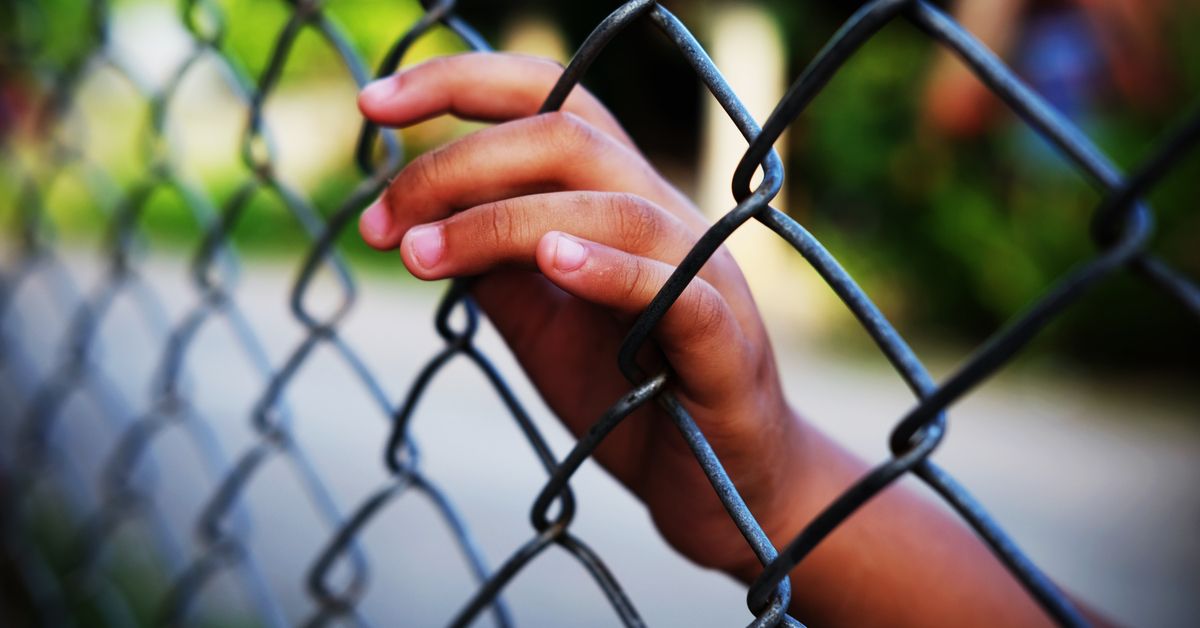Weeks after rolling out its botched "zero tolerance" policy whose effects critics have likened to kidnapping, the Trump administration refused to say whether children were still being taken from their parents at the southern border. Officials also said they are waiting on Congress to modify a law limiting how long children can be detained before giving them back to their parents.
Although Health and Human Services officials said on a 26 June 2018 press call that they are working to reunite children with their families, Commander Jonathan White, Assistant Secretary for Preparedness and Response (ASPR) said the agency had in its care 2,047 children who had been taken under "zero tolerance" — only six fewer than the figure given for six days earlier. He also said HHS is waiting for Congress to pass legislation modifying the Flores settlement agreement - a law that prohibits detention of children for more than 20 days.
During Senate testimony earlier in the day, HHS Secretary Alex Azar told legislators children couldn't be reunited with parents in detention unless the law was modified or parents completed their legal process:
We're not allowed to have a child be with a parent who is in custody of the Department of Homeland Security for more than 20 days. And so until we can get Congress to change that law, the forcible separation there of the family units, we'll hold them or place them with another family relative in the United States. But we are working to get all of these kids ready to be placed back with their parents, get that all cleared up, as soon as if Congress passes a change or if those parents complete their immigration proceedings, we can then reunify
This drew rebuke from Sen. Dianne Feinstein (D-California) who wrote that the Trump administration "is holding children hostage to push parents to drop their asylum claims."
HHS officials also refused to answer a question from PBS Newshour reporter Lisa Desjardins asking whether they were still receiving children separated at the border. Without explanation, HHS officials wouldn't answer the question and moved on to the next. We followed up with HHS to ask the same question, and did not receive an answer.
Since Attorney General Jeff Sessions first announced the "zero tolerance" policy in April 2018, the Trump administration has made conflicting statements about its intent and effect. In March 2017, then-Department of Homeland Security Secretary John Kelly said he was considering separating children from parents at the border as a deterrent against migration: "Yes, I am considering — in order to deter more movement along this terribly dangerous network — I am considering exactly that."
After the policy went into effect, DHS Secretary Kirstjen Nielsen maintained that the administration did not "have a policy of separating families at the border" and during a May 2018 hearing insisted the policy was not intended as an immigration deterrent.
Under "zero tolerance" all migrants who are caught crossing the border between ports of entry are charged with crimes — mostly misdemeanors, and their children are taken from them. Sessions said in announcing the policy:
If you’re smuggling a child, then we’re going to prosecute you, and that child will be separated from you, probably, as required by law. If you don’t want your child separated, then don’t bring them across the border illegally. It’s not our fault that somebody does that.
President Trump has stated he does not want immigrant families to be separated, blaming his political opponents in the Democratic party for the policy his administration created, only to later double down and demand immigrants be denied due process before being deported in violation of the law while calling for "law and order."
Government officials have scrambled to explain what the end results of the policy on families would be. Initially there seemed to be no plans for reuniting families, then as outrage grew officials claimed detained parents would get their children back if Congress passes legislation allowing their kids to be incarcerated with them.
Public fury over the policy has grown with news reports depicting distraught, torn-apart families and weeping children in care facilities. The policy has also been challenged by litigation from the American Civil Liberties Union and the New York Attorney General's Office, which described children rendered suicidal due to trauma from being taken from their families:
For example, a South American boy who was separated from his father at the Mexican border was rushed to the hospital because he was about to jump out of the second-story window of the group home where he was sent in early June after being forcibly separated from his family; the distraught child verbalized that he wanted to jump because he missed his parents.
Citing an overburdened system, Customs and Border Protection announced they would stop making "zero tolerance"-related arrests but did not respond to questions seeking clarification.
Later on the evening of 26 June 2018, a federal judge ordered that most family separations at the border end immediately and that all children under the age of five must be returned to their families within 14 days; all minors over five and under 18 must be returned to their families within 30 days.
